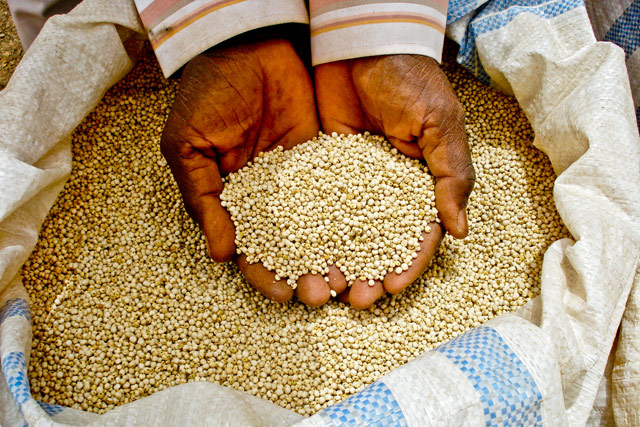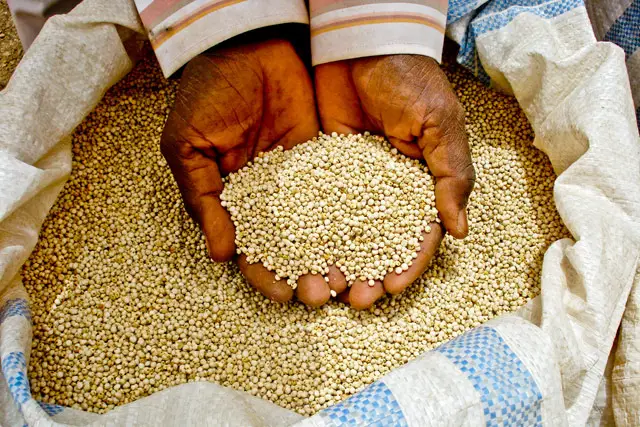
Crédits photo : DR
Abidjan, Côte d’Ivoire – To boost agricultural production and productivity in the Sudan, the Bank approved US $42 million in concessional grants from the African Development Fund to support the National Agriculture Investment Plan.
Mohamed Zaghloul, Executive Director representing Egypt and Djibouti, said, “The Bank’s support to the development of key agricultural value chains and market access is timely and will go a long way in helping Sudan in its efforts to revive its agriculture sector.”
Estimated at a total cost of US $47.5 million, the five-year Agricultural Value Chain Development Project will also receive US $1.0 million from the Fund for African Private Sector Assistance and an estimated US $4.5 million from the Government of Sudan for selected activities.
The project will help drive comprehensive socio-economic development with a dynamic, climate-resilient agricultural sector that will in turn enhance production and productivity, improve household incomes and food security, and create markets and facilitate trade.
Starting in July-August 2018 in North Kordofan, West Kordofan, and Khartoum States, the project focuses on groundnuts, sesame, potato, and gum Arabic. Farmers in at least 236,457 households in 13 localities in the Kordofan Region, of which half are women, will benefit directly. In Khartoum State and its surroundings, potato farmers cultivating more than 50,000 hectares will also benefit. Some two million residents in North and West Kordofan States will benefit indirectly from the project.
The project is in line with the Bank’s Ten Year Strategy (2013-2022), particularly for private-sector development, agriculture, and food security, the High 5s Feed Africa Strategy (2016-2025), its flagship Technologies for African Agricultural Transformation, and its Empowering Novel Agribusiness-Led Employment for Youth in African Agriculture Project (ENABLE Youth). This project also responds to the imperatives of the Bank’s Gender Strategy (2014-2018) for promoting gender equality, and the Addressing Fragility and Building Resilience in Africa Strategy (2014-2019).
Mohamed Zaghloul, Executive Director representing Egypt and Djibouti, said, “The Bank’s support to the development of key agricultural value chains and market access is timely and will go a long way in helping Sudan in its efforts to revive its agriculture sector.”
Estimated at a total cost of US $47.5 million, the five-year Agricultural Value Chain Development Project will also receive US $1.0 million from the Fund for African Private Sector Assistance and an estimated US $4.5 million from the Government of Sudan for selected activities.
The project will help drive comprehensive socio-economic development with a dynamic, climate-resilient agricultural sector that will in turn enhance production and productivity, improve household incomes and food security, and create markets and facilitate trade.
Starting in July-August 2018 in North Kordofan, West Kordofan, and Khartoum States, the project focuses on groundnuts, sesame, potato, and gum Arabic. Farmers in at least 236,457 households in 13 localities in the Kordofan Region, of which half are women, will benefit directly. In Khartoum State and its surroundings, potato farmers cultivating more than 50,000 hectares will also benefit. Some two million residents in North and West Kordofan States will benefit indirectly from the project.
The project is in line with the Bank’s Ten Year Strategy (2013-2022), particularly for private-sector development, agriculture, and food security, the High 5s Feed Africa Strategy (2016-2025), its flagship Technologies for African Agricultural Transformation, and its Empowering Novel Agribusiness-Led Employment for Youth in African Agriculture Project (ENABLE Youth). This project also responds to the imperatives of the Bank’s Gender Strategy (2014-2018) for promoting gender equality, and the Addressing Fragility and Building Resilience in Africa Strategy (2014-2019).
 Menu
Menu
 African Development Bank supports agricultural value chain development to improve household incomes and food security in the Sudan
African Development Bank supports agricultural value chain development to improve household incomes and food security in the Sudan
















